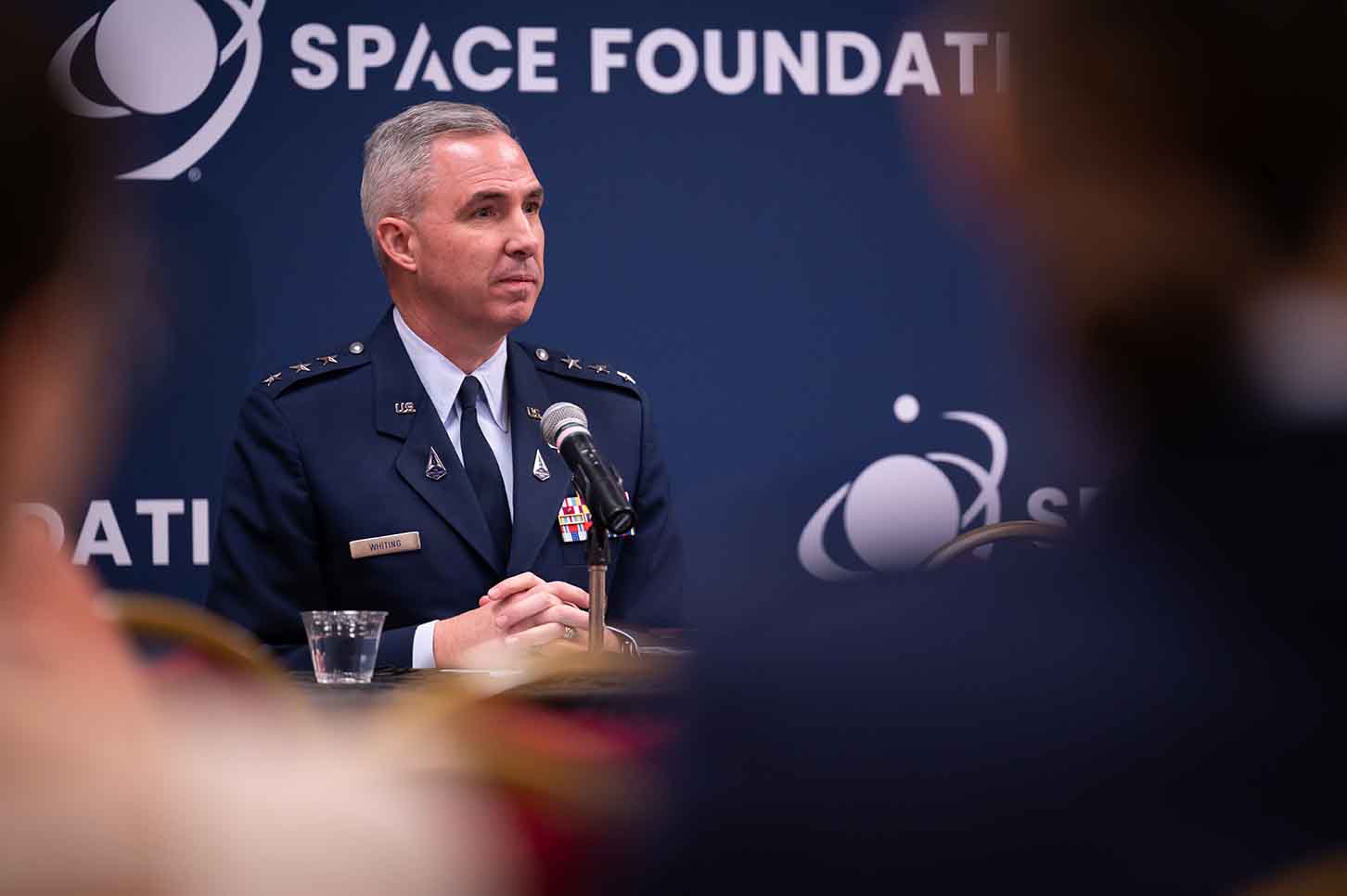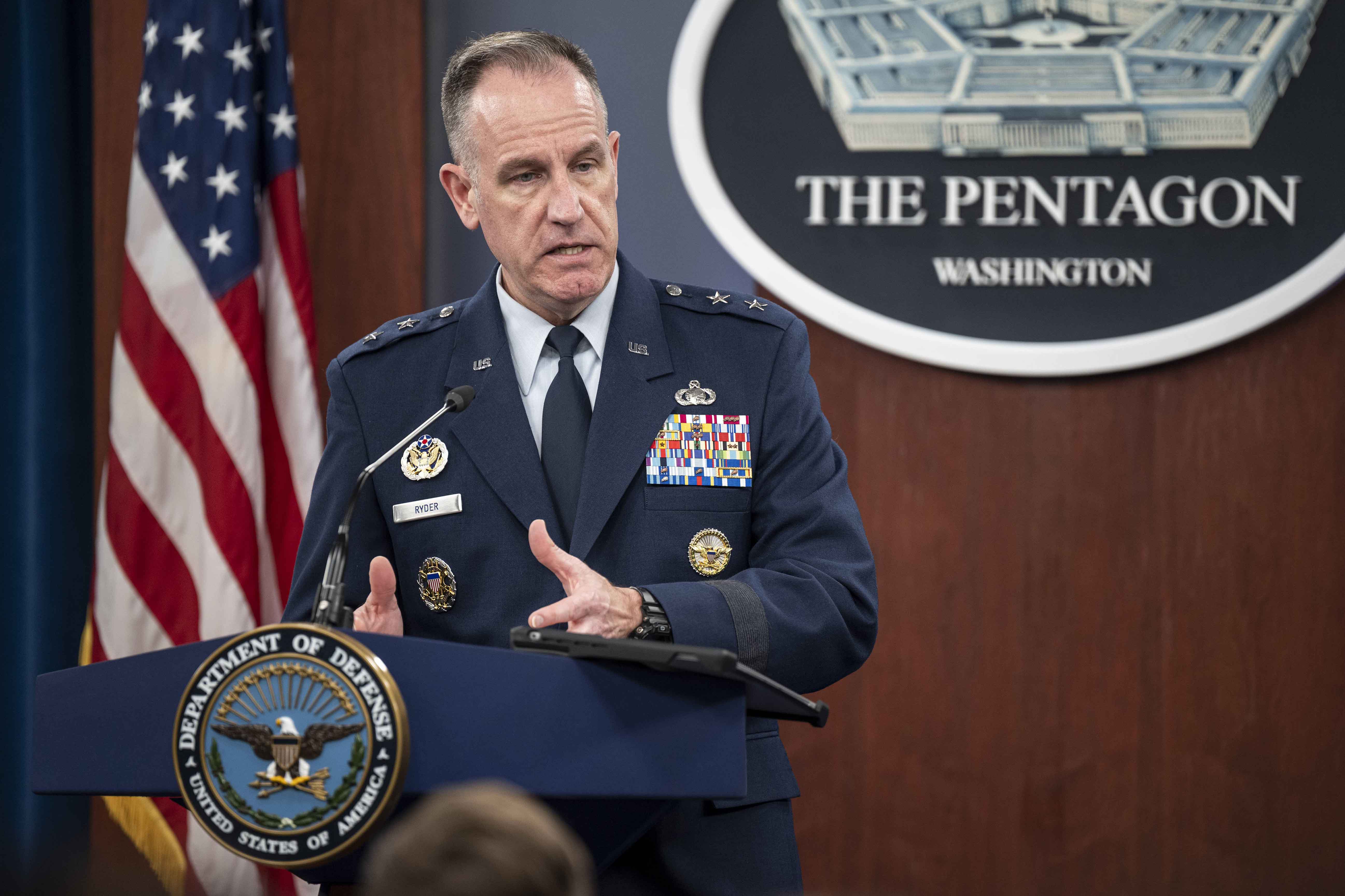Lt. Gen. Stephen N. Whiting, Space Operations Command commander, listens to a question from a reporter during a media roundtable at Space Symposium, April 6, 2022. (U.S. Space Force photo by Staff Sgt. Kirsten Brandes)
In a significant development highlighting the escalating dynamics in space, Deputy Defense Secretary Kathleen Hicks addressed the evolving challenges and advancements in the U.S. space domain. Speaking in Colorado Springs, Colorado, during a pivotal command transition ceremony, Hicks underscored the critical aspects of space security in the contemporary geopolitical landscape.
At this event, Army Gen. James H. Dickinson passed the baton of U.S. Space Command to Space Force Gen. Stephen N. Whiting. This transition marks a crucial juncture in the United States' space endeavors, reinforcing the strategic significance of space in national security and defense.
Hicks emphasized the increasing capabilities of adversaries like Russia and China, specifically their efforts to undermine space-based systems such as GPS. These systems are integral to the military superiority of the U.S. and its allies, and the growing threats posed by these nations call for enhanced vigilance and countermeasures.
In her remarks, Hicks conveyed a dual message of caution and hope. While acknowledging the potential for conflict, she firmly stated that such an outcome is not inevitable. The U.S. remains committed to averting conflict through a robust strategy of deterrence, making it clear to competitors that any aggressive acts would incur costs far outweighing their benefits.
Highlighting the advancements in the U.S. space program, Hicks pointed to the deployment of a vast constellation of smaller, more resilient, and cost-effective satellites. This development is not only a testament to technological progress but also to the dynamic nature of America's commercial space industry. This sector has been instrumental in enabling the U.S. to outpace China's growth in space launches and payloads over the last five years.
The numbers speak volumes: from 2019 to 2023, China doubled its annual space launches and tripled its payloads in orbit. However, the U.S. surged ahead with its space launches increasing fourfold and payloads launched augmenting nearly 13 times during the same period. In 2023 alone, China launched 240 payloads to orbit, while the U.S. achieved over 2,500 payloads.
Deputy Defense Secretary Hicks confidently asserted that with continued investment in space, the U.S. is poised to extend its lead significantly. This perspective resonates with the sentiments expressed by Vice Chairman of the Joint Chiefs of Staff Navy Adm. Christopher W. Grady. Speaking at the same event, Grady highlighted the indispensable role of space in national defense, describing it as the most essential warfighting domain, crucial to national security, coalition interoperability, and global stability.
The ceremony also included recognition of the exemplary leadership and achievements of Dickinson at U.S. Space Command, with high expectations placed on his successor, Whiting, to build upon these accomplishments. Both Hicks and Grady acknowledged the support provided by the generals' wives, who have also been instrumental in supporting other military families.
The ceremony was not just a change of command but also a reaffirmation of the U.S. commitment to space excellence and leadership. It underscored the importance of continued collaboration with allies, partners, industry, and academia in advancing the nation's space capabilities.
As Gen. Whiting assumes command, he is expected to further these collaborations, building on the strong foundation laid by his predecessor. The U.S. Space Command, under this new leadership, stands at a pivotal point, ready to navigate the challenges and leverage the opportunities of space, which has become an increasingly critical domain in the tapestry of global security and defense.





Leave a comment
This site is protected by hCaptcha and the hCaptcha Privacy Policy and Terms of Service apply.